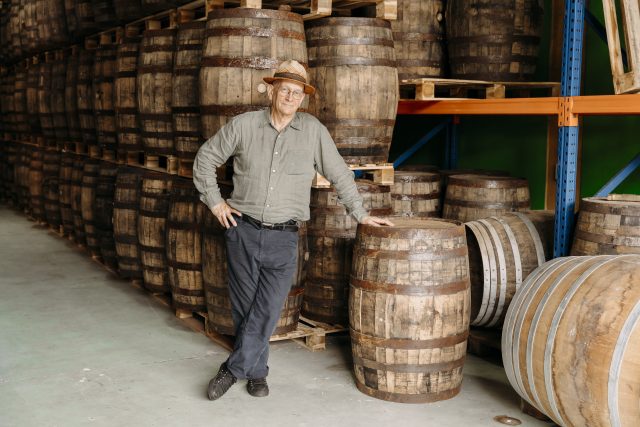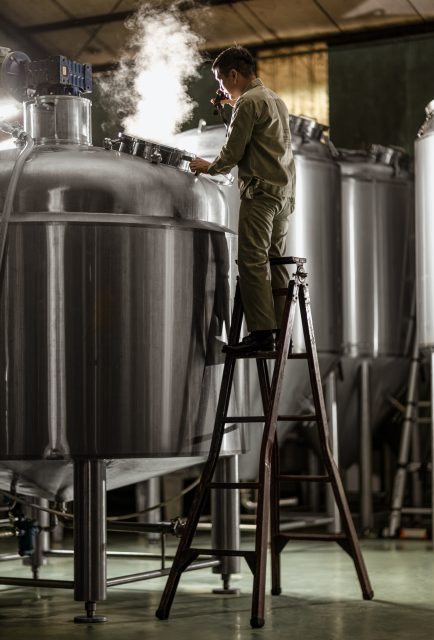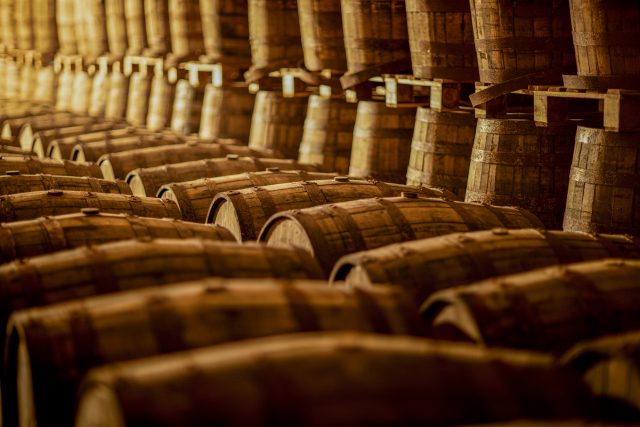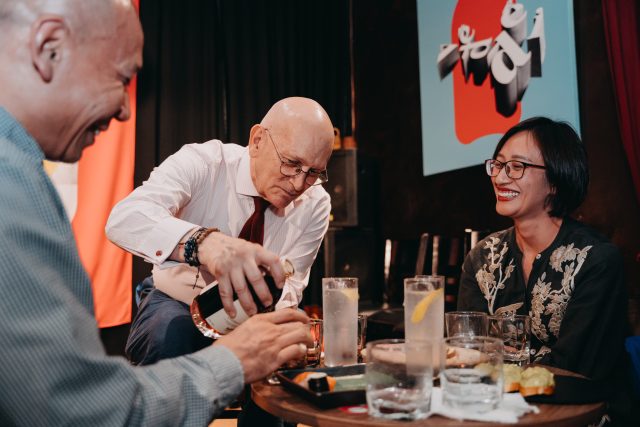Vietnam’s first whisky distillery announces inaugural release of private casks
By Dan Q DaoHanoi-based distillery Về Để Đi has released private casks of the first single malt from Vietnam for US$5,900. Co-founder Dr Michael Rosen tells Dan Q Dao why the country is on the verge of a creative revolution.

In recent years, distilling in warmer climates has become a topic of interest in the spirits world. While all the effects of tropical climate-ageing are still being explored, one thing is clear: the West no longer has a monopoly on producing whisky. These days, it’s possible to find craft single malts coming out of places like India, Taiwan, and now Vietnam — thanks to Hanoi-based craft distillery Về Để Đi.
“Hot climate distilling — in the tropics or subtropics — is really coming to be understood by whisky geeks, and increasingly people in general, as an absolutely correct space,” says Dr. Michael Rosen, who co-founded Về Để Đi with business partner Quan Nguyen. “In the barrel, the wood and the whisky dance together. The chemical interaction that produces those new flavour profiles happens much faster in warmer climates as the wood is expanding and sucking in very quickly.”
Launched in 2020, Về Để Đi, which translates roughly to “I come so I can go”, has become particularly known domestically for its Vietnamese gin, made with local botanicals, and its creme de cacao, produced in collaboration with famed Vietnamese chocolatiers Maison Marou. But according to Rosen, the brand was always conceived with the specific mission of launching the first full-scale whisky distillery in Southeast Asia, producing both corn and single malt whiskies.

“We know we can’t be Macallan, or even Kavalan, because we’re not owned by a giant,” Rosen says. “But I think it’s the craft distilleries that are crazy enough to experiment and do things on the fringe. We’ll play with yeast, and mash bills. We’re talking to people in HaLong Bay to put a few barrels on boats and see what the terroir of Vietnam does. We’re buying corn from Hmong families, and planting barley in Tay Bach.”
Helmed by master distiller Edward Tiege (previously of Copalli Rum in Belize), the distillery on the outskirts of Vietnam’s capital is equipped with a 3,000-litre copper pot wash still, 2,000-litre copper pot spirit still, 4,000-litre mash tun, and six 3,000-litre fermentation tanks. The first barrels of whisky were laid down in October, and Rosen says the distillery is now en route to grow from one to two mashes a day. The distillery’s unaged corn and single malt new-makes were awarded two medals in The Spirits Business – Specialty Masters 2023.
The company has now announced the first private sale of its single malt whisky, matured in a 200-litre American oak first-fill ex-bourbon cask for two to three years. For the investment of US$5,900 (£4,684), plus a US$10 bottling fee per bottle, consumers will receive somewhere between 180 to 270 bottles of Vietnam’s first ever single malt, depending on preferred ABV and duration of ageing. The labels can be customised, and the deal also includes membership to the founders club and a 10% forever discount on standard distillery offerings.

Partner Content
“It’s great to be offering people something they had never considered before, and making history with Vietnam’s first barrels of whisky,” Rosen says. “We live in a gifting society, so people can gift the bottles for Tet, weddings, or birthday parties. It’s been encouraging to see some of the leading investors here — really knowledgeable people — supporting us and purchasing from us. And the interest has really come from older individuals as well as entrepreneurial younger Vietnamese people.”
According to Rosen, global interest in Asian spirits, particularly subtropical spirits, is broadly growing. He cites brands like Taiwan’s Kavalan, India’s Amrut, and Israel’s Milk & Honey as pioneers of whisky in their respective markets. Then there’s the Pernod-Ricard–owned Jefferson’s Bourbon, who recently released an expression aged in Singapore specifically to convey the effects of climate-focused ageing.
Still, within Vietnam, where the luxury market skews more conservative and mainstream, consumer education remains key to demonstrating the value of craft products. To this end, Rosen says Về Để Đi will soon launch a more accessible bottle club that will grant access to a bottle each year, along with other products like the creme de cacao, plus some of the perks also included in the private barrel like annual distillery tours and an annual banquet.
“We’re aware that we’re in a place where people still generally focus on age statement Scottish single malts, and we’re selling no age statement Vietnamese single malts,” Rosen explains. “To get people to understand what we’re doing, we really need to create a community.”

Rosen cites homegrown brands like Maison Marou and 4P’s Pizza, which has opened locations in India and Japan, as forerunners in proving that Vietnamese goods can go global. “They both converted the Vietnamese market to have faith that Vietnam could make — no — does make world-class chocolate and pizza,” Rosen says. “Our interest is to do the same for whisky.”
Rosen, who moved to Vietnam in 2012 after years working in real estate and as a professor in New York City, feels that Về Để Đi’s work in introducing Vietnamese consumers to locally-made, world-class whiskies is ultimately in line with a greater cultural revolution taking place in Vietnam amid the boom of tech, fashion, art, film, and gastronomy.
“Vietnam’s on this wonderful edge of creativity,” he concludes. “I know it because I was there on the Lower East Side in the early eighties as things were changing. There were artists and musicians, galleries and restaurants were opening, and you could just feel the creativity. It’s exactly the same here now.”
Related news
Buffalo Trace Distillery grapples with historic flooding




